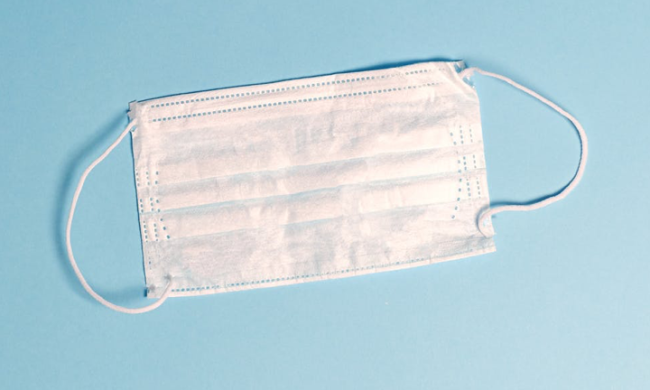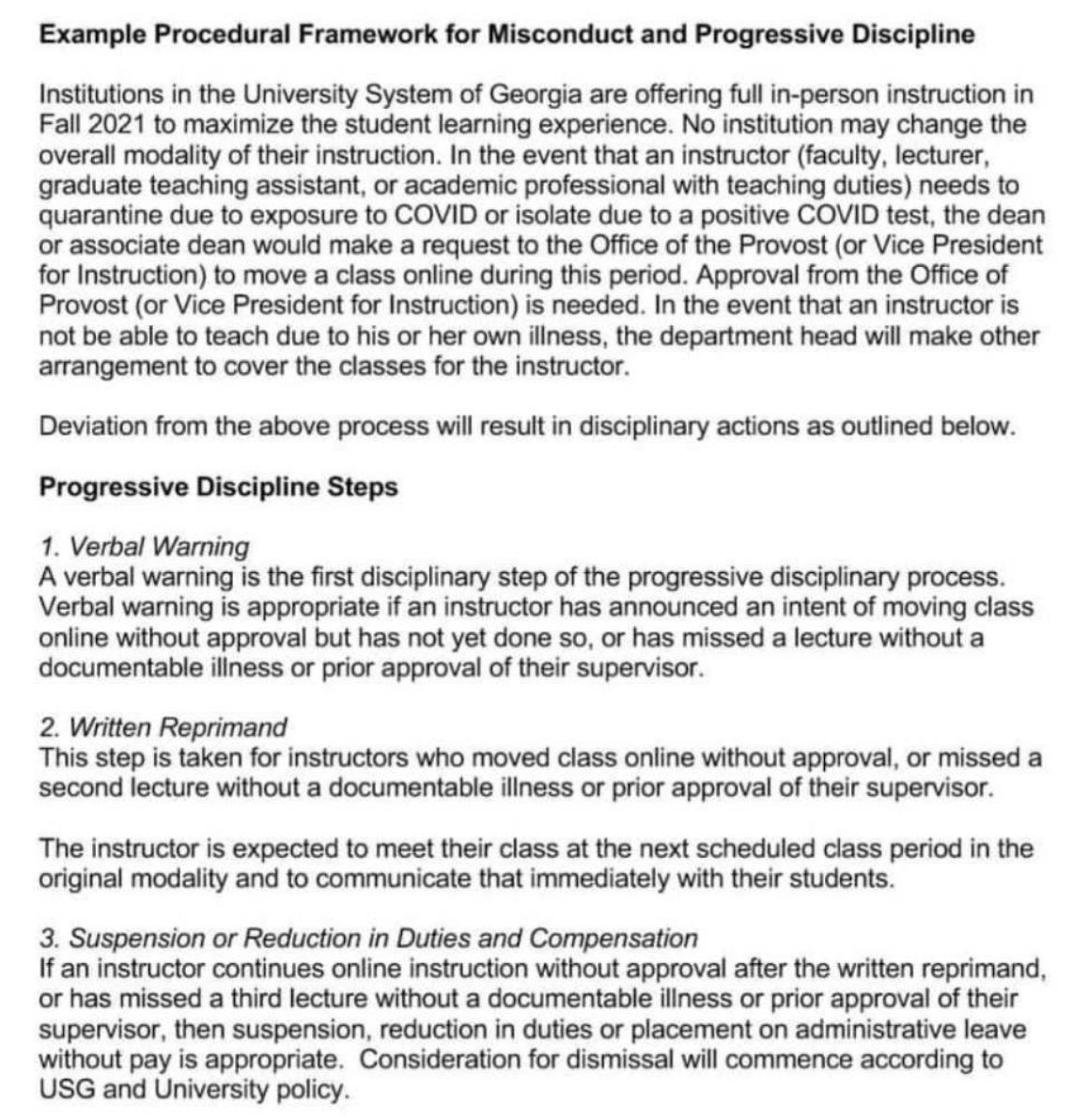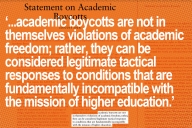You have /5 articles left.
Sign up for a free account or log in.

Anna Schvets/Pexels.com
The University System of Georgia, which opposes mask and vaccine mandates across its 26 institutions, appears poised to discipline professors who defy these policies in their classrooms. At the same time, many professors are ramping up their opposition to the system’s stance on COVID-19 mitigation.
“I’m getting basically an email an hour: ‘Are we walking out? Are we going to court?’ Every day, all day,” said Cindy Hahamovitch, B. Phinizy Spalding Distinguished Professor of History and incoming chair of the University of Georgia’s Franklin College of Arts and Sciences Faculty Senate.
Faculty members in Georgia aren’t currently planning a walkout, and they’re legally prohibited from doing so in that state as public employees. (Hahamovitch didn’t exactly rule out a future walkout, however, saying that state law "doesn’t mean we can’t do it, just that you have to do it en masse.”) Professors are currently planning a series of actions, starting today with a Franklin Senate vote on a resolution condemning the system’s “failure” to protect its campuses and demanding a mask and vaccine mandate.
If administrators continue to fail to act, the resolution says, the faculty would be acting “ethically, responsibly” and according to Centers for Disease Control and Prevention guidance by changing course modality -- in other words, by moving courses online.
Also today, members of the United Campus Workers of Georgia will hold a "die-in" protest at Georgia State University, to demand mask and vaccine mandates and flexible teaching and working arrangements.
The Georgia conference of the American Association of University Professors is planning a week of protests, starting Monday, at more than a dozen campuses. Scheduled at staggered times each day to minimize any impact on instruction, protests will take place in designated campus free speech zones.
Matthew Boedy, associate professor of rhetoric and composition at the University of North Georgia and president of the Georgia AAUP, said via email that the university system, by his count, “saw an astonishing 4,400 cases in August 2021 alone. This after a spring semester -- 3.5 months -- of roughly 8,000 cases.” COVID-19’s Delta variant, he said, “is burning through campuses.”
The conference is seeking an immediate mask mandate, at minimum. Boedy wrote to the university system’s acting chancellor, Teresa MacCartney, alerting her to the protest, but he has not heard back.
Some professors are taking individual action, including in the form of resignations. Irwin Bernstein, Distinguished Research Professor Emeritus at the University of Georgia, even quit on the spot last month when a student refused to wear a mask, after Bernstein explained that his age and health conditions put him at high risk for severe COVID-19.
“The student in question had missed the first class. When she showed up, I explained my personal situation and asked her to wear a mask,” Bernstein said. “She had none, but another student gave her one. She started to put it on but said it was uncomfortable and refused. I told the class that I was retiring effective immediately. I had been, after my first class, told that I could not write my [‘No mask, no class’] message on the blackboard or enforce masks in any manner.”
Joe Fu, professor of math at the University of Georgia, doesn’t plan on resigning, but he said at a recent meeting of the Franklin Senate that he was requiring masks in his classes. He also said he’d take his courses online if local COVID-19 hospitalizations exceeded their pandemic peak, some 319 beds, in January.
In response, Alan Dorsey, dean of the Franklin College of Arts and Sciences, wrote to Fu that “continued enforcement of a mask requirement in your classes or effecting a change in the modality of instruction without the approval of the provost would violate [system] rules and constitute grounds for disciplinary action.”
Fu later went public with the exchange in the student newspaper. He told Inside Higher Ed Wednesday that he was undeterred by the threat of disciplinary action, though he hoped that his university would choose not to enforce system policy and thus pave the way for other concerned professors to take adopt classroom mask mandates or even take their classes online.
Either way, he said, “My hope is that this will amplify these issues … You know, morale is extremely low. People are very unhappy with the situation, and yet, people are afraid to raise a finger. I’m not a smartest guy, but at least I can do that.” Fu said that Wednesday’s local patient count, based on the Georgia Medical Facility Patient Census, was 302.
The environment for professors who would act to mitigate classroom COVID-19 transmission on their own chilled further this month with the leak of a partial draft document on how system institutions may discipline these faculty members. The document, a screenshot of which is circulating online and shown below, says that “progressive discipline steps” include a verbal warning, a written reprimand and suspension or reduction in duties and compensation.
“If an instructor continues online instruction without approval after the written reprimand, or has missed a third lecture without a documentable illness prior to approval of their supervisor, then suspension, reduction in duties or placement on administrative leave without pay is appropriate,” the draft policy says. “Consideration for dismissal will commence according to USG and university policy.”
Janet Frick, associate professor of behavioral and brain sciences at Georgia, said that she received the document from someone familiar with a meeting among system provosts about the policy.
Lance Wallace, a university system spokesperson, said late Wednesday that the “framework shared with provosts at the 26 USG institutions is a template for institutions to consider when addressing faculty discipline. The framework reflects USG’s efforts to ensure students receive the instructional experience for which they registered.”
The university system remains “committed to keeping our campus communities healthy and safe,” Wallace said, noting a $200 credit for vaccinated employees, announced last month. “We continue to work closely with the Georgia Department of Public Health as we have since the pandemic began and we strongly encourage everyone to wear a mask or face covering while inside campus facilities.”
On vaccines, also said, “While we urge vaccination for everyone, we recognize it is an individual decision to receive one and not required to be on our campuses.”
Today, the system’s Board of Regents will consider adding the following language to its policy on disciplining and removing faculty members: “A faculty member may also be separated from employment prior to the end of the contract term other than for cause as outlined here, pursuant to other policies of the Board of Regents. Such other policies shall not be governed by or subject to the following policies on Grounds for Removal and Procedures for Dismissal.”
Frick said that she’s heard from more than a dozen students in her large lecture class who have tested positive for COVID-19, and from others who are worried they are sick. To assist those students and others concerned about attending a large class amid the outbreak, she’s allowing students to attend her lectures via Zoom. She’s also adopting a liberal attendance policy and limiting student-to-student interactions and her own movement in the class.
Some other professors don’t have those options: both Frick and Hahamovitch said that while professors without special permission are all required to teach in person, some have been told by their departments to require students to be in class and not to stream lectures online.
Rod Guajardo, University of Georgia spokesperson, said that instructors can accommodate students who need to quarantine or isolate due to COVID-19 "as they normally would have accommodated ill students before the pandemic."
Faculty members "can use technology in the classroom to record and broadcast lectures to assist students who may need to be in quarantine/isolation," he added via email. "Other options such as asking for note takers, providing a recorded session of the class, offering make-up sessions, and others, can also be used to help students who are unable to attend class due to COVID-19.”
Hahamovitch said she worried that some of the teaching directives will encourage students to come to class even if they’re sick, as she’d already heard comments from students to that effect.
“This is of course not just about the faculty,” Hahamovitch said, noting that students and staff members such as food service personnel may face higher COVID-19 risks than professors in classrooms with unmasked students. But as far as instruction goes, she said, “Some people are providing a Zoom option, regardless of the rules, and they risk disciplinary action for doing so. It’s a crazy catch-22.”









